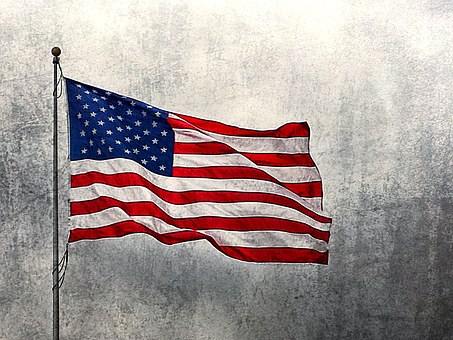1. This country threatened to treat U.S.-led coalition aircraft as targets after a Syrian government warplane was shot down:
a) Iran
b) Russia
c) North Korea
2. The Senate Judiciary Committee argued on June 20 where to draw the line on which college campus issue?
a) Free speech
b) Sexual assault
c) Drug abuse
3. In a new study, this group of American women faces low overall well-being compared to other generations when they were in the same age range.
a) Baby boomers
b) Generation X
c) Millennials
4. Last week, a Virginia data firm left what kind of data unprotected for anyone on the internet to access?
a) Voting records
b) Credit card purchases
c) Medical documents
5. The demand for gasoline in the United States is decreasing for what likely reason(s)?
a) Fewer undocumented immigrants are driving
b) Pump prices have risen
c) Both a and b
6. The Air Force opposed a House Armed Services plan on June 21 to create a separate military corps to defend:
a) Submarine trenches
b) Space
c) Freshwater sources

1. b) Russia threatened to target U.S.-led coalition aircraft over Syria after a Syrian government warplane was shot down, according to Bloomberg News. The Russian Defense Ministry called the aircraft’s downing “a cynical violation of Syria’s sovereignty,” and said they’ll respond with “track(ing) any air targets, including the international coalition’s planes and drones, found to the West of the Euphrates river.”
The U.S.-led coalition statement said they shot the warplane in the “collective self-defense of coalition-partnered forces” following the bombings close to American-backed fighters near the town of Tabqah. Frants Klintsevich, deputy head of the defense committee in Russia’s upper house of parliament, said although this doesn’t mean war with the U.S., it sends a “pretty serious” sign that Russia won’t tolerate aggression against their ally.
2. a) The Senate Judiciary Committee argued over what determines legitimate free speech on college campuses, according to the McClatchy Washington Bureau. Both public and private universities have had conflicts involving free speech in recent years, including the University of California, Berkeley and Kellogg Community College ― which cancelled conservative speakers and had three students arrested for handing out pocket Constitutions, respectively.
While the First Amendment protects all kinds of rhetoric, Senators also addressed how administrators should restrict speech that isn’t peaceful. “I do believe that the university has a right to protect its students from demonstrations once they become acts of violence,” said Sen. Dianne Feinstein, D-Calif.

3. c) Millennial women, born between 1982 and 2002, have less overall well-being compared to their mothers and grandmother when they were in their youth, according to the Los Angeles Times.
The nonprofit group Population Reference Bureau ranked “well-being” on 14 metrics, including health, earning capacity and education, and found that young American women today are poorer, more likely to commit suicide and be barred from lucrative tech jobs. Compared to the baby boomers and Generation X ― who experienced 66 and 2 percent increase in well-being, respectively ― female millennials’ welfare decreased by 1 percent.
4. a) The voting records of 198 million American were exposed online for anyone to access, according to the McClatchy Washington Bureau. Because the U.S. has around 200 million registered voters, most of these citizens had their names, birth dates, addresses and other information exposed on the national database.
Deep Root Analytics, the data firm in Arlington, Va., said the information was used in targeted television advertising, and the network access settings were changed after June 1 allowing a brief window of exposure. A company statement read, “Based on the information we have gathered thus far, we do not believe that our systems have been hacked.”
5. c) At a time when demand for gasoline in the U.S. normally rises during the summer, Bloomberg News reported that fewer undocumented immigrants on the road might be a reason for the decrease. After President Donald Trump took office in January, government agents increased their utilization of routine traffic stops to find undocumented people and deport them, leaving immigrants afraid of using transportation.
Another reason could be the 58.7 cents per gallon increase in pump prices over the first two quarters, which is higher on average than a year earlier. However, prices dropped over the past five weeks, to $2.285 a gallon as of June 19, which AAA data showed was the lowest at that time of year since 2005.
6. b) The House Armed Services Strategic Forces Subcommittee included in the fiscal 2018 defense authorization bill a portion which “calls for a separate service dedicated to defending space,” according to Roll Call. Space currently falls under the Air Force’s domain, and while the new service would fit under the department, its leader would have membership with the Joint Chiefs of Staff.

It was opposed by leaders of the Air Force, including Secretary Heather Wilson, who testified to the Senate Defense Appropriations Subcommittee on June 21. She told reporters, “This will make it more complex, add more boxes to the organization chart and cost more money. If I had more money, I would put it into lethality, not bureaucracy.”



















